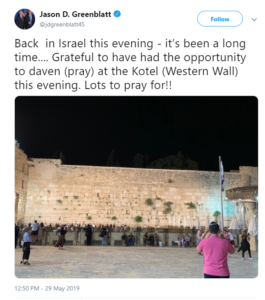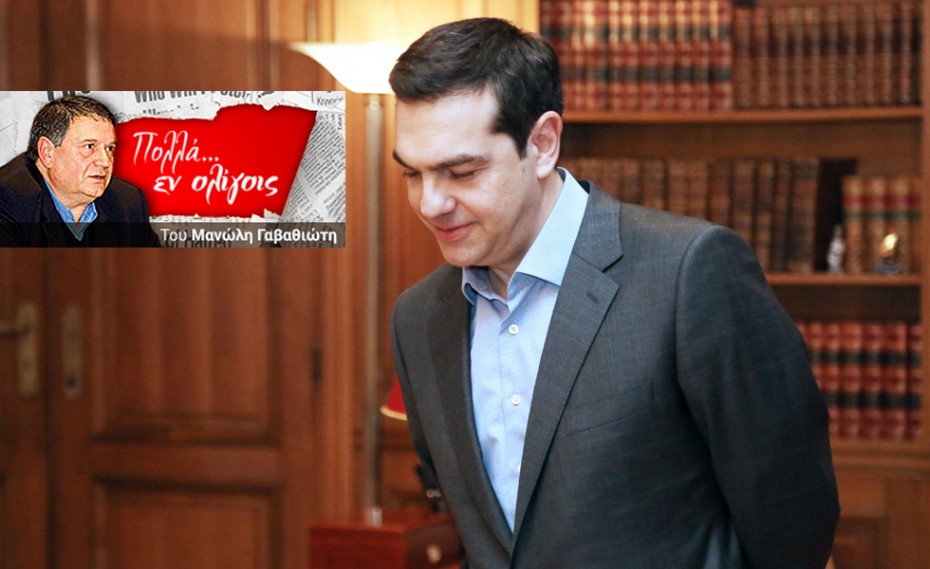Κε Κίσσιντζερ Πριν “Φύγεις”, Κάνε Και Ένα Καλό Για Την ΕΛΛΑΔΑ, Που Κάποτε Σταύρωσες!
1.
Lost in Translation

Forty years after the Islamic Revolution mercilessly pulled at Iranian Jewry like a powerful vacuum cleaner over a precious Persian rug — forcing us to rebuild our lives as immigrants or protected refugees — many in the Jewish community know what Iranian Jews have gained in the United States and what we have given back to this country.
From a local angle, one look at downtown Los Angeles, Westwood or Beverly Hills — at synagogues pulsing with chatty people, thriving businesses and startups — points to a community that truly has moved beyond survival to thrive, build, create and renew.
Yet, after 40 years of living in the U.S., Iranian Jews still haven’t acknowledged everything we have lost as we’ve sought to rebuild ourselves in this country.
I’m not referring to the lives, homes, possessions and memories we lost in Iran. Those hold their own spaces in the unfillable voids of our hearts and quiet yearnings of our dreams. The loss is hidden within a piece of ourselves — in a certain, simple humanity within us that often is muted amid the wonderful noise of an all-American life.
We all know what we gained by escaping Iran. Perhaps now it is time to ponder what few have dared ask before: How are we worse for it? Is what we have lost irretrievable, as we relentlessly push forward with our American dreams?
I was raised in a home in post-revolutionary Iran filled with women, including my mother, both of my grandmothers and a multitude of aunts. Women were everywhere; from our living room, where they sat cross-legged on the Persian carpet and rolled up dozens and dozens of stuffed grape leaves together, to the backyard, where they hung freshly laundered shirts on the line to dry and warned children not to steal the clothespins and clasp them over their noses. They worked in the garden, pruning the fragrant red roses and throwing big handfuls of seed and grain into our dove aviary. In the kitchen, they huddled around giant pots of boiling meat broth and argued over who had the definitive Persian stew recipe, and tasted each dish that had been prepared, in a magnificent display of culinary competition and slightly devastating constructive criticism.
“Flora,” my favorite aunt, was apt to say to my mother, “Tabby’s too thin. She looks like a stalk of parsley. Feed her one raw egg mixed with chocolate powder every day.”
I love America, and I love being an American, but if I have any more personal space, I’m going to suffocate.
“Chicken fat is the best thing for scrawny children,” another aunt would chime in. “Everyone knows that. Flora, substitute chicken fat for oil and you’ll see a real difference.”
Finally, in a cold, firm voice meant to convey that as the matriarch who had seen everything, she was the ultimate authority on thin kids, my maternal grandmother would say, “That child needs [barbari] bread in the morning, full-fat yogurt in the afternoon and plenty of meat in the evening.”
I remember sitting on my mother’s lap, listening to many conversations like this and delighting in knowing that women not only are incredible and indispensable, but they truly know everything. I loved those women, and from the safety of our home, I was mesmerized by the sight of their luscious hair, which they (and I) were forced to cover in public after the revolution.
When I think back to my childhood in Iran, I remember much more than the nightmare of having lived as a young, female Jew with Ayatollah Khomeini in power and President Saddam Hussein’s Iraq waging war upon us from across the border.
I recall all those glorious women: the ones with fat calves and thin wallets; the ones who shared every secret, except for that one recipe that remained forever theirs; the ones who gathered together, raised children together, shared their loneliness about their marriages together; the ones who laughed, sobbed and complained together, yet weren’t fated to stay together because nothing rips at the heart of a family more than wars and revolutions.
Some of those women even came to this country, and I often wonder if they’ve ever experienced a day of real peace and comfort since — the kind that lets a weary soul rest, not the kind derived from luxurious couches, smooth cars or a Costco every 15 miles.
In America, we always confuse comfort with contentment.
Thirty years after those childhood moments I spent in the company of those women who loved me and defended me, held me accountable and asked more of me, I am raising my own children in America — in the company of seemingly no one.
Today, I work part time from home and am blessed to be able to care for our toddler and infant. Yet I spend nearly all those moments — whether at home or at the supermarket — in solitude. I have all the freedom in the world to raise my children the way I see fit (my husband is at work every day) yet I grieve that my children will never know the glorious experience of having been raised by a group of vibrant women, as I was — even if that came with its challenges because the unsolicited advice my mother received from everyone else never seemed to end.
With some exceptions, American women are free to mother as they choose. However, Americans often forget why we’re free to raise our children as we wish: It’s because we’re almost always alone.
From teenagers who escape reality by shutting out parents and turning on phones; young men and women who struggle with drug addiction or mental health issues on their own because they’re afraid to tell family members; married couples who can’t reveal their infertility struggles without being deemed somehow defective; to any adult who still lives at home with his or her family, we’re all still alone, because there’s something about living in the U.S. that lends itself quite well to living — and struggling — on your own.
For a new generation of Iranian American Jewish mothers, the village that once raised children in Iran now is compressed into a local “mommies” group on Facebook. Even that can elicit guilt and shaming from total strangers who wonder in the form of a comment why you would ever let your child “have a rash like that for more than an hour.”
In such instances, I truly miss having been raised by my grandmothers and aunts in Iran, who would have come up to my mother and said, “You know we love you, but for God’s sake, put some fenugreek and cold cream on your child’s bottom before she turns as red as the beets.” I long to hear such feedback from a know-it-all aunt who could visit me several times a week, rather than from “Debbie” in a Facebook mothers’ group.
The fact that many young women who stay home with their children usually are alone during the day also means they now have extraordinarily greater loads on their plates than ever before. “Tabby,” my mother observed last month as she watched me standing slightly crookedly in front of our kitchen counter, “you stand on your feet too much. When I was your age, I didn’t know what [body] pain was.”
She was right. For nearly a decade, she raised her two daughters with the help of my maternal grandmother, who cooked many of our meals; my paternal grandmother, who lovingly played with us for hours on end; and our many aunts, who slipped us a big bowls of pasta behind our mother’s back when she told us not to ruin our appetites with anything other than meat.
These days, my mother would like to help me but she knows mostly recipes for Persian food, which, however sumptuous, our toddler rejects because he’s discovered chicken nuggets. She struggles to read to him from our multitude of English-language books, and although she cannot pronounce Seussian words such as “wocket” and “nizzards,” she appreciates the books’ magical whimsy.
I understand all of those wonderful women who helped raise me in Iran were able to do so because they could afford to stay home, or because traditional Iranian society did not expect them to work. In the United States, a working woman is the norm. It would be unrealistic to demand I or anyone else be surrounded at home by a support network of people who have nothing better to do than to give us advice on how to persuade our children to eat right.
This is America; we all work and we all hustle. If we need creative ways to feed our children, that’s what Pinterest is for. But for some reason, arguing over chicken fat versus raw eggs and chocolate with my phone instead of a human being always falls flat.
Having a job may be stimulating and rewarding, but it doesn’t mean we still won’t feel alone. Individualism — that wonderful benchmark of the American spirit — can be just a stone’s throw away from solitude and isolation.
I am blessed to have several aunts within proximity to our home in Los Angeles, but I see them only a few times a year because of two of the greatest blessings-turned-curses in this wonderful country: Everyone here is perpetually, maddeningly busy, whether she is 5 or 65, and the indisputable reality of living in a country where everyone respects boundaries and no one wants to “intrude upon your time.”
I am raising my own children in America — in the company of seemingly no one.
The American emphasis on the individual and individual space not only is a foreign value in Iran, but all over the Middle East, including Israel, where a small family dinner at home often turns into a block party with neighbors, and friends arrive at one’s apartment uninvited but certain they’ll never be turned away because “it’s not the right time.”
Personal space is overrated, especially in this city, where one could spend an entire day driving and not talk to another soul. I love America, and I love being an American, but if I have any more personal space, I’m going to suffocate.
The first lesson I learned about the U.S. came in the form of a Chicken McNugget. Immediately after landing at Los Angeles International Airport, our family experienced its first, true moment of American life: We found a McDonald’s, but because we’re Iranian, we became frustrated and overwhelmed at the sheer number of ways someone could make a sandwich. The same paradox of choice soon showed us that in America, there was more than one way to be Jewish, and that included deciding not to be Jewish.
We had never heard of distinctions such as Reform, Conservative, Orthodox or anything else when we were in Iran. If you were Jewish, you either were known to be more practicing or less practicing. That was pretty much it. No one quibbled over who was a “good Jew” because it was hard enough to ensure you were being a “good Iranian,” especially after the revolution, when the first Jewish casualty of the brutal, new theocracy was a generous philanthropist named Habib Elghanian, who was murdered for “being friends with the enemies of God,” a reference to the various charitable causes he supported in Israel.
In Iran, Jews lived as a minority without the option of disassociating from their Jewish identity and joining the majority, unless they wanted to convert to Islam. Even if they were less-observant Jews, as far as many in the greater Shiite population was concerned, they still were Jews — and Jews only.
America simply doesn’t work like that. Here, we’re still a minority, but the only people who never let us forget that at our core, we’re Jewish — whether we’re Reconstructionists, Chabadniks or completely unaffiliated — are anti-Semites. Otherwise, it can become easy even for us to forget we’re Jewish.
Despite an alarming uptick in anti-Semitic incidents during the past few years, I believe the majority of non-Jewish Americans wouldn’t conduct business with a colleague or admit someone to an institution of higher education before thinking to themselves, “I wonder if he is a Jew?”
That wasn’t the case in Iran. For reasons ranging from last names that sounded Jewish to good old-fashioned gossip, everyone knew who was Jewish and who wasn’t. This meant Jews had no choice but to stay within their community simply because Iranian society was less apt to let them break out of it.
Until the turn of the 20th century, this separation was a physical one, as most Jews in Iran were forced to live in Jewish quarters, commonly referred to as the “mahaleh,” because they were believed to be so “najes,” or ritually impure, that they could contaminate the general Muslim population. Jews were banned from leaving their homes during the rain or snow lest their impurities get washed onto a Muslim.
Eventually, the walls of those ghettos wore away, and in the two decades leading up to the 1979 Islamic revolution, the Jews of Iran assimilated more into the greater population in that many embraced secular lifestyles and counted Muslim Iranians as close friends and co-workers. Yet the unspoken boundaries between Jews and the greater population still were alive and palpable.
In Iran, Muslims define Jews; in the United States, Jews define themselves, and often this means they negate themselves because they reject any semblance of Jewish identity. It would only be a matter of time before some Iranian American Jews began to do the same.
Individualism — that wonderful benchmark of the American spirit — can be just a stone’s throw away from solitude and isolation.
“Daniel” believes he is “religiously homeless” but describes his situation with the kind of apathy most people normally reserve for choosing laundry detergent. He won’t set foot inside an Orthodox, Persian synagogue because it reminds him of everything he came to hate about it as a child. According to Daniel, this includes rabbis who try to “scare” congregants into observing halachah, or Jewish law, rather than inspiring them, and Hebrew prayers he cannot understand because he never had any formal Jewish education.
Yet, he cannot attend services at a Reform congregation because everything — from the melodies to the nerve-wracking silence of people praying rather than chatting — are too foreign to him. He’s also anxious that at any moment, a rabbi, informed by gossip, will pull him aside and try to convince him to end his two-year relationship with a young woman of Mexican descent who is not Jewish. He’s stopped attending inspirational talks on Jewish issues aimed at students and young professionals because none of these lectures has come close to the kind of passion and joy his girlfriend exudes when she talks to him about the amazing kindness of Christianity.
Would Daniel have faced such isolation and struggle had he been in Iran? Of course not. He would be living under an oppressive regime and scraping together enough money to buy his family some meat (the rate of inflation in the country currently is 51%) while cursing himself for not having tried to leave Iran sooner. He would have been miserable, but according to his mother, at least he would have made it to a few Shabbat services every now and then.
In America, we each received a second life, but the real question is: What are we doing with that life?
There’s a lot to be said for community, in all its forms: the elderly baker who made fresh loaves of barbari bread so elegantly that the dough almost seemed like an extension of his hands, and who always slipped you a little extra piece and gave you a blessing that your mother should have more healthy children; the kosher butcher who knew exactly what kind of meat you needed the day before Shabbat; the neighbor who heard your bitter screams and invited you to her home for a cup of a tea and a plea for you to be more compassionate to your emotionally detached husband. They were all there — in a land of blessing and curse — where you seldom locked your front door and always lived as a Jew, because society rarely allowed you the chance to identify as anyone else.
There’s a reason why most people — including Persians — prefer peacocks over pigeons. While pigeons annoy, peacocks display, and they display brilliantly. They often hide their true beauty until just the right moment, then whip it out in a fantastic show of lavish opulence. They remind me of a young Persian man who dresses humbly, then drives off in his shiny new Maserati, or every family who takes out a second mortgage on its modest home to fund a $700,000 wedding.
Were we like this back in Iran? A few of us were, but I believe we all had the potential to flaunt what we had — that is, once we were able to get our hands on something. That’s where America came in.
Twenty-five years before Facebook, Iranian American Jews were living in a way that elicited awe, respect and, yes, envy, which is exactly what many wanted. Then social media came along and made what used to be a glamorous wedding attended by 400 into an enviable wedding “trailer” film, shot overhead with a drone and viewable by 2,000 people who didn’t attend the wedding.
In the 1970s, my father asked if he could marry my mother. Technically, he didn’t even ask her; he stood before her and her family, in witness of his own family, praised my mother’s virtues and asked my grandfather for the privilege to marry her. In a way, it sounds backward and unromantic, and qualifies as the very definition of the collective as opposed to the individual.
Today in the United States, or at least in Beverly Hills, a wedding proposal is a very private moment, shared only by the loving couple — and a few photographers, videographers and perhaps a florist. After the happy news is announced via social media, there’s a flurry of congratulatory messages — hundreds of them — all delivered virtually.
In one instant, that private moment becomes publicly visible and with it, self-questioning begins. Parents see those images on Facebook and might wonder why their daughters still are single; wives click on a photo and are envious of the engagement ring in that picture; older folks feel happy for the bride and groom but might wonder why they were fated to endure such a miserable marriage. We all compare.
In Iran, Muslims define Jews; in the United States, Jews define themselves, and often this means they negate themselves because they reject any semblance of Jewish identity.
In Iran, especially after the revolution, miserable societal conditions overshadowed personal misery, whether in the form of an unhappy marriage or unfulfilled career goals. We had bigger fish to fry than feeling inadequate over the size of engagement rings.
In this country, we not only have the freedom and means to fry the fish, but we sit alone and chew on every single piece, often with a side of bitterness and ingratitude.
Ironically, we now have the opportunity to know more about others’ lives than ever before, but most of what we know — such as someone’s latest glamorous vacation — matters little, and we hardly see one another.
In America, we each received a second life, but the real question is: What are we doing with that life?
Are we working harder, driven by an obsession to give more tzedakah this year than we did last year, or by an obsession to have better devices this year than we did last year?
Are we desperate to be married so we can love and be loved and also ensure Jewish continuity and transmit 3,000-year-old values, or so we can have perfect photo ops and congratulatory messages from 800 of our closest friends?
Are we taking full advantage of America’s religious freedoms by choosing to actively live as Jews, or not holding ourselves accountable for whatever assimilation we believe inevitably will knock on our doors?
America is amazing in that it redeems and saves us but also allows us the opportunity to wholly lose ourselves. But do I ever wish I still lived in Iran? Never.
I have bigger fish to fry.
Tabby Refael is a Los Angeles-based writer, speaker and co-founder of 30 Years After, which promotes civic action, leadership and participation in Jewish life among Iranian American Jews.
2.
Saudi King, Arab Nations Denounce Iran At Emergency Summit In Mecca
Saudi Arabia’s King Salman issued a call at an emergency summit of Arab leaders in Mecca for the international community to use “all means to stop the Iranian regime from interfering in the internal affairs of other countries.” …
| Arab Leaders Condemn Terrorist Actions of Houthi Militias and Iranian Conduct in the Region
Leaders and heads of delegations of Arab countries have condemned the actions of the Houthi terrorist militias and the conduct of Iran against the principles of good neighborliness, which threatens security and stability in the region. |
Iran complying with nuclear deal’s key limits: UN nuclear agency
Iran’s increased stocks of key nuclear materials are still within the limits set by a 2015 deal it signed with major world powers, a quarterly report by the UN nuclear agency says. …
| US Troop Levels in Syria ‘Quite a Bit Lower’ with Help on the Way
U.S. officials are touting a “measurable decrease” in the number of U.S. troops in Syria, though they refuse to say just how many remain in the country to aid in the fight against remnants of the Islamic State terror group. … |
| Another North Korea Purge? Experts Are Divided
One of South Korea’s most influential newspapers reported Friday that North Korea executed its top envoy to the United States following February’s failed summit between Kim Jong Un and Donald Trump. … |
World Food Programme accesses Yemeni frontline district for first time since conflict began
Amid the world’s largest humanitarian crisis still unfolding in Yemen, the UN World Food Programme (WFP) has gained access to the rebel-held northern district of Nihm, for the first time since the war between Houthis and the Saudi-backed Government coalition escalated in 2015. …
US Warns India May Face Similar Problems as Turkey Over S-400s Purchase – Report
Turkey has experienced troubles in its relations with the US since it picked Russia’s state-of-the-art air defence system over other alternatives, including America’s Patriot systems. Washington has reportedly halted the delivery of parts for F-35s already ordered by Ankara and threatened the country with sanctions as well as exclusion from NATO. …
3.
Analysis: Trump V. Obama – the carrot and the stick – which is working on Iran?

By Daniel Krygier, World Israel News
Preventing Iran from developing nuclear weapons has been a top foreign policy issue for the Trump administration and one might say the Obama administration before it — although the two have approached the problem from opposite polls.
President Obama embraced a carrot approach. He negotiated a generous agreement with the Iranian regime in 2015.
Proponents of the Iran deal like former U.S. Secretary of State John Kerry argue that the agreement did stop Tehran from developing nuclear weapons. He argues that the deal curbs the country’s nuclear enrichment and monitors the regime’s nuclear activities through inspections.
Delay isn’t prevention
Trump’s point, that the deal postpones rather than neutralizes Iran’s quest for nuclear weaponry through its sunset clauses, is in fact the main weakness of the agreement. Even Obama admitted that there is nothing preventing Tehran from renewing its uranium enrichment once the deal expires in 2025.
Carrot or stick? No one questions that Trump’s sanctions are taking a bite out of the Iranian economy. Iran’s President Hassan Rouhani admits as much. Setting aside for the moment the issue of its nuclear aspirations, a strong argument can be made for the benefits to the Western world of this policy, given the fact that Iran spends a whopping $7 billion funding terror activities, something which the Obama deal did nothing to address.
While opponents of Trump’s policies may blame him for Iran’s aggressive behavior since he pulled out of the deal, there’s nothing to suggest that the Ayatollahs ever turned over a new leaf. Quite to the contrary, they continued their hostile actions even after the deal. Over 200 Israeli sorties into Syria since 2017 is ample evidence of that fact. The Jewish State must constantly fight off Iranian attempts to establish its ‘land bridge’ to the Mediterranean, something Israeli defense experts all agree must never be allowed to happen.
Trump’s outside pressure has also stepped up internal domestic pressure on Iran. Protests by everyday Iranian citizens against the difficult economic conditions have been ongoing since April 2018. Anything that increases the chances for regime change in a state which prioritizes terrorism over the economic well-being of its citizens should be actively encouraged.
The Islamist regime, too, will not go quietly into that good night. It, too, needs a push. Trump’s sanctions may provide it. Like yesterday’s Soviet regime, today’s Iran is overstretched, deals with an unhappy populace and faces an economy in free fall.
The Ayatollahs, like the Soviets, aren’t capable of taking on America. They may spout threats but financial and political pressure will keep them focusing on survival, giving them little time to pursue their global Islamist ambitions.
That is something that should be devoutly wished by America, Israel, Iran’s neighbors and the Iranian people thirsting for freedom and opportunity.
4.
Report: Netanyahu wants Trump to save Israeli gov’t coalition, avoid new elections
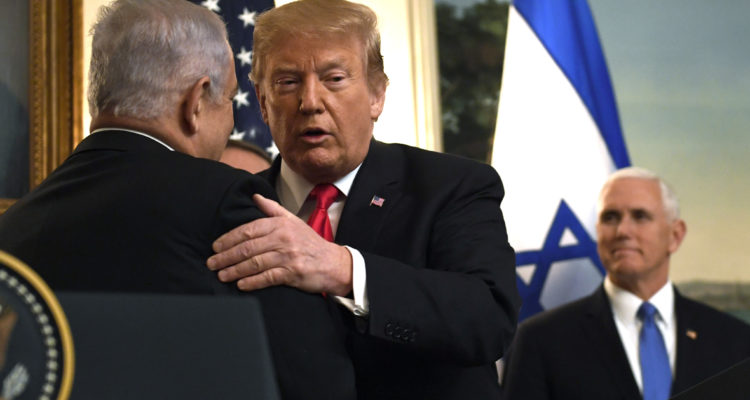
In a brief speech to the press on Monday at the Knesset, Prime Minister Benjamin Netanyahu warned against “unnecessary elections” and called for all parties to act responsibly. To bolster his argument, he noted that President Donald Trump himself had expressed his hopes that a coalition would be formed.
A strong U.S.-Israel relationship carries weight with the Israeli public and Netanyahu is hoping, also with Avigdor Liberman, the main holdout to forming a government. According to Maariv, Netanyahu wants members of the Trump administration to step in and pressure Liberman to join the coalition.
However, Israeli officials told Maariv that Netanyahu thinks the Trump card may work with Liberman, who will be asked to join the government out of “national responsibility.”
The Trump administration announced earlier this month that it will unveil the first phase of its long-awaited blueprint for Mideast peace in June at a conference in Bahrain. The administration was assuming that Netanyahu would have a stable coalition in place by then.
But the mercurial Liberman seems to be holding his ground.
“The only motivation of Israel Beiteinu is to stand by our principles and our commitments,” he said in a Facebook post. “We are not looking to topple Netanyahu and are not looking for an alternative candidate, but we will not compromise.”
The crisis ostensibly revolves around Lieberman’s insistence that current legislation mandating that young ultra-Orthodox men be drafted into the military goes through the Knesset voting process without a single modification or alteration to the bill.
Haredi, or ultra-Orthodox parties consider conscription a taboo, fearing that military service will lead to immersion in secularism. Although exemptions have led to widespread resentment among non-religious Israelis, the haredi parties insist they stay in place.
IDF blasts Syrian missile battery after it fired on Israeli fighter jet

Two Syrian soldiers were killed, says the Syrian Observatory for Human Rights, a U.K.-based information service. Its director earlier reported that three Syrian soldiers were wounded.
Prime Minister Benjamin Netanyahu said on Monday, “A short while ago the Syrian army attempted to hit an Israeli plane; it did not succeed. In response the air force destroyed the launcher that fired on the plane. Our policy is clear – we will not tolerate any aggression against us, and we will respond forcefully.”
Israel’s main goal is to prevent Iran from establishing a presence in Syria and from transferring munitions to its proxy, Hezbollah, in Lebanon.
Yaakov Katz: The story behind Israel’s 2007 attack on Syria’s nuclear reactor
Shmuel Rosner and Yaakov Katz discuss his new book, “Shadow Strike: Inside Israel’s Secret Mission to Eliminate Syrian Nuclear Power.”
Yaakov Katz is Editor-in-Chief of “The Jerusalem Post“. He previously served for close to a decade as the paper’s military reporter and defense analyst. He is the co-author of two other books, “Weapon Wizards – How Israel Became a High-Tech Military Superpower” and “Israel vs. Iran – The Shadow War.”
In 2012-2013 he was a fellow at the Nieman Foundation for Journalism at Harvard University and is a faculty member at Harvard’s extension school where he teaches an advanced course in journalism.
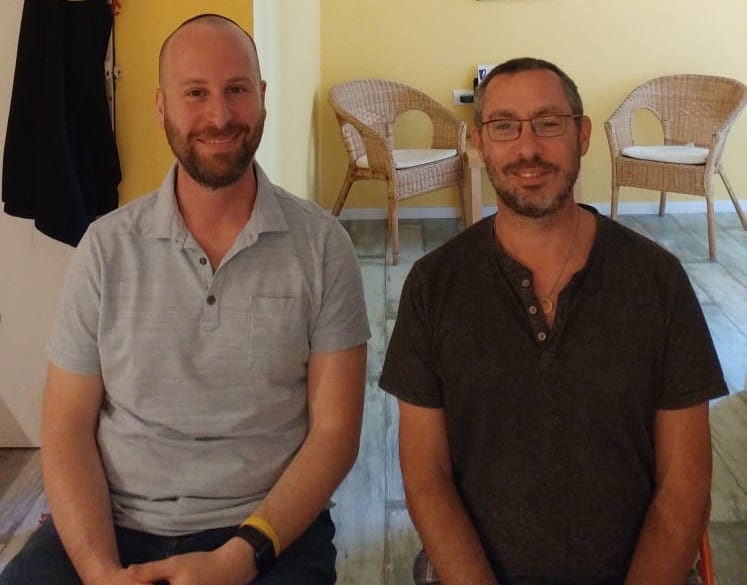
7.
Anti-Zionism Worse than Anti-Semitism

The real question is: How did Israel’s “right to exist” ever become an issue in the first place?
After all, we never hear about Syria’s right to exist or Libya’s right to exist or Sudan’s right to exist or Yemen’s right to exist. A country can commit genocide against its people and inflict the worst humanitarian disaster and no one will ever bring up its “right to exist.”
So, why is it OK to single out Israel?
Here’s my theory: If you hate Jews so much that you want to challenge their very presence, your best bet is to go after Israel. Jew haters know they can’t start a movement to eliminate the Jews, so they do the next best thing: They work to undermine, in sneaky ways, the world’s only Jewish state.
Anti-Semitism revolves around an emotion — hate. Anti-Zionism revolves around an action — destruction.
A stark example is the boycott, divestment and sanctions (BDS) movement, the leading global force against Israel. Its very name is misleading. Words like “boycott” “divestment” and “sanctions,” which are taken straight from the social justice manual, create a façade of genuine protest to hide a purely destructive agenda.
This charade shouldn’t shock anyone who’s been paying attention. In recent years, it has become more and more evident that the BDS agenda is not to criticize Israel but to crush it.
Even prominent BDS activists, like Ahmed Moor, have come clean: “OK, fine. So BDS does mean the end of the Jewish state.” Or university professor As’ad
AbuKhalil, another BDS activist: “The real aim of BDS is to bring down the State of Israel.”
Omar Barghouti, the founder of BDS himself, has said on the record: “Definitely most definitely we oppose a Jewish state in any part of Palestine.”
To undermine the 3,000-year Jewish connection to the land, Barghouti uses language like “acquired rights” and “indigenized.” His vision includes “de-Zionization” of Israel and the return of up to 5 million Palestinian “refugees” to flood the Jewish state.
Had BDS called itself the WIN movement — Wipeout Israel Now — no one would have taken them seriously. Instead, it uses the messaging of protest and intersectionality to attract well-meaning activists who don’t want to see Israel wiped out. This subterfuge is their strategy, and for the gullible crowd, it’s working.
BDS’s core success is sucking in much of the mainstream media and others who believe in “two states for two people” and assume that BDS is a way of pressuring Israel to get there.
It is far from that. The BDS mission originates straight from the founding mission of the PLO in 1964, before any Jewish settlements existed, which was to eliminate what is still seen as the unacceptable and humiliating sovereign Jewish-Zionist presence in Arab-Muslim lands.
Jew hatred may fuel the Israel hatred behind BDS and other anti-Israel forces, but after that, Israel-hatred wreaks havoc on its own. This is why, in my eyes, anti-Zionism is more lethal than anti-Semitism: It carries the virus of elimination.
As author Gil Troy writes in an email from Jerusalem, “Thousands have been killed and maimed by modern anti-Zionism, which requires the ideological and rhetorical inflammation to get people to blow themselves up and kill innocents. As a result, not only have we absorbed the notion that Israel’s existence should be up for grabs, but our outrage has been dulled –— we accept attacks on Israel as normal.”
Demonizing Israel and singling it out for special condemnation is immoral and discriminatory regardless of any claims of anti-Semitism.
Underlying the whole assault on Israel, he adds, “is the rejection of us as a people — we are just supposed to be a ‘nice’ religion confined to our synagogues and JCC’s, not a people taking up real space in the international arena.”
In sum, it is hardly enough to argue that anti-Zionism is anti-Semitism. In at least one crucial way it’s worse than that. Anti-Semitism revolves around an emotion — hate. Anti-Zionism revolves around an action — destruction.
Anti-Zionism must be fought on its own terms. Demonizing Israel and singling it out for special condemnation is immoral and discriminatory regardless of any claims of anti-Semitism.
Israel doesn’t just have a right to exist. Like any other imperfect state, it has a right to thrive, whether you hate Jews or not.
8.
Israel to host unprecedented high-level security meeting between US, Russia
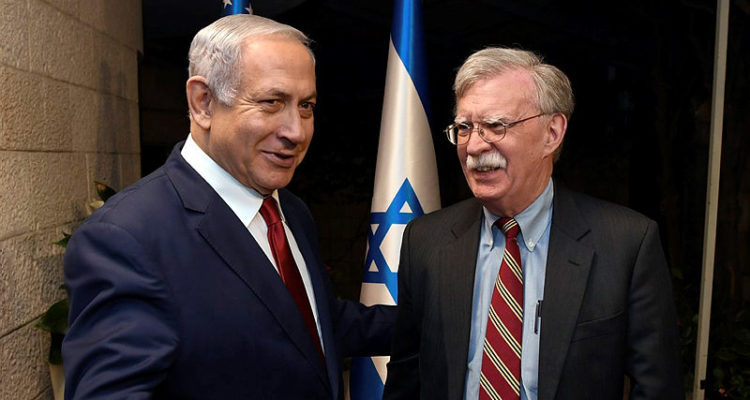
By World Israel News Staff
As Prime Minister Benjamin Netanyahu emerged from the Knesset chamber early Thursday morning after parliament had just voted to call a new election to take place on September 17, he told reporters angrily that Israel had much more important things to do right now than hold an election.
In that context, he disclosed details of an event that apparently had been revealed in Washington just moments earlier. Calling it unprecedented, Netanyahu said that Israel would be hosting a security meeting with officials from the U.S. and Russia.
“This is what we want to do, not unnecessary elections,” Netanyahu scoffed.
According to media reports, the Iranian presence in Syria is expected to be at the center of the agenda, along with the U.S. withdrawal from that country.
According to the Israel Hayom newspaper, Netanyahu’s relationship with Trump and Putin has put Israel in a unique position to act as a go-between between the U.S and Russia on the Syrian issue.
Bolton visited Israel in January and tried to allay Israel’s fears over the U.S. pullout from Syria.
In April, Ben-Shabbat met Bolton in Washington. The U.S. national security adviser tweeted after that meeting that “the close United States-Israel strategic partnership reflects the tremendous strength of the ties between our governments and the citizens of our two allied countries.”
9.
Analysis: The problem in Germany is about more than a ‘kippa’!

By Jonathan Tobin, JNS.org
Who could really be surprised by the story that grabbed the attention of the Jewish world this past weekend? When Felix Klein, Germany’s first Commissioner for Jewish Life in Germany and the Fight Against Anti-Semitism (yes, that’s his full title) warned Jews about the danger of wearing a kipah in public, it was hardly a shock that this would be the case in the country responsible for the Holocaust.
Yet the alarming frankness of his admission has made it impossible to ignore the truth about the threat to Jews in Europe any longer.
It’s easy to applaud Rivlin’s defiant response, which sums up the spirit of Zionism: “We will never submit, will never lower our gaze and will never react to anti-Semitism with defeatism—and expect and demand our allies act in the same way.”
Treating the whole problem
In the United States, we know that anti-Semitism comes from both the far right and the intersectional left. But many partisans prefer only to focus on the hate that can be blamed, whether fairly or not, on their political opponents and to turn a blind eye to that which can be linked to their allies.
Anti-Semitism from the some of its traditional sources on the right is fueling hostility to Jews. In Germany, that takes the form of resentment against its “culture of remembrance” of the Holocaust.
Unfortunately, not only have that culture failed to eradicate the lingering impact of 2,000 years of anti-Semitic incitement; it has also resulted in widespread resentment at the Jews. All too many Germans don’t seem able to forgive the Jews for reminding them of their grandparents’ guilt.
But that isn’t the only factor contributing to anti-Semitism.
As it has in many other European countries, the recent massive influx of immigrants from Muslim and Arab countries has created a vast new constituency. There is a long tradition of contempt for Jews in Islamic culture that has only been exacerbated by their resentment about the creation of modern-day Israel.
Muslim expressions of hatred for Israel and Jews are now indistinguishable from traditional European anti-Semitic invective. This has created a bizarre alliance between Muslims and leftist academics, in addition to other elites who engage in similar delegitimization of Israel, Zionism and Jews.
Disputable statistics
Much is being made of an official German government statistic that shows that most violent attacks on Jews come from right-wingers, rather than Muslims. However, as a New York Times Magazine report about German anti-Semitism published the week before Klein’s controversial comments, that statistic has been disputed by German Jewish leaders and is now largely discredited.
German authorities routinely ascribe any attack for which they can’t or won’t assign a direct motive as the work of right-wing anti-Semites, whether there is any proof of their involvement or not. Polls of German Jews also show that a plurality of those who have experienced anti-Semitism say the person(s) responsible were Muslim extremists.
It’s hard for Jews to trust populist movements, whether in Germany, France or anywhere else in Europe, even when they now proclaim their support for Israel or a wish to defend Jewish communities. Those who are willing to engage in hate speech about Muslims are probably also likely to do so about Jews.
It is axiomatic that Jewish security in any country is tied to the way all minorities are treated. But those who want to minimize one source of anti-Semitism—whether from the traditional right, the left or from Muslims—in order to focus on another threat that they feel more comfortable denouncing are doing Jews who are at risk no favor.
At this juncture, the question of who the Jews should call their allies isn’t that significant. What is important is to realize that the sickness that once destroyed European Jewry has not only been revived, but that this virus has morphed into a new variant in which Israel has become the stand-in for traditional Jewish stereotypes and the excuse for a new wave of hate against all Jews.
We should applaud those Germans who will now symbolically don kipotfor a day or two in order to express their solidarity with the Jews. But the problem isn’t merely a matter of head coverings or educational programs focused on hate that have already clearly failed.
It’s foolish to think that it’s possible to separate the routine delegitimization of Israel from the way Jews are treated. What’s happening in Europe is proving again that wherever anti-Zionism is legitimized, anti-Semitism grows and anti-Jewish violence follows.
10.
‘Deal of the Century’ in question as Kushner meets with Israel’s prime minister

By World Israel News Staff
Jared Kushner, U.S. President Donald Trump’s senior adviser and son-in-law, met with Prime Minister Benjamin Netanyahu on Thursday afternoon. Kushner is in Israel to build momentum toward next month’s “economic workshop” in Bahrain.
Also attending the meeting were U.S. Special Representative for Iran Brian Hook and Israeli Ambassador to the U.S. Ron Dermer.
“It’s always a great pleasure to welcome Jared Kushner and Jason Greenblatt to Israel, to Jerusalem, and to discuss our common efforts for prosperity, security and peace,” Netanyau said. “I’m tremendously encouraged by how the United States, under President Trump, is working to bring allies together in this region against common challenges, but also to seize common opportunities.”
However, with Netanyahu unable to form a governing coalition, the future of the Trump plan is in question. Ironically, the Trump administration waited to present its peace plan until after Israel had a new government in place.
Israel is the third and final stop for the team working to garner support for a Middle East peace plan. The envoys first stopped in Morocco, where they met with King Mohammed VI, Crown Prince Moulay Hassan and Foreign Minister Nasser Bourita. They then went to Jordan to meet with King Abdullah II.
Following his meeting with King Abdullah II, Greeblatt tweeted: “Constructive meeting with @KingAbdullahII in Jordan today including a good conversation about regional dynamics and our administration’s efforts to help Israel and the Palestinians achieve a brighter future.”
Though Moroccan officials have declined commenting on the visit, the official Petra news agency reported that the Jordanian visit involved discussing, “regional developments, especially efforts to resolve the Palestinian-Israeli conflict.”
Thus far, neither Morocco nor Jordan have confirmed attendance in Bahrain. However, Saudi Arabia, the United Arab Emirates and Qatar will be joining the conference while expressing solidarity with the Palestinians.
The Bahrain conference will discuss economic incentives to bring peace between Israel and the Palestinians. However, it has been made clear that Palestinian statehood is not on the agenda. Therefore, Palestinian political leaders as well as representatives from China and Russia will boycott the event.
Kushner has signaled that the White House may be pulling back from America’s previous support for a two-state solution.
However, he has billed the economic workshop as “a pivotal opportunity… to share ideas, discuss strategies and galvanize support for potential economic investments and initiatives that could be made possible by a peace agreement.”
After meeting the prime minister, Kushner affirmed the U.S. president’s commitment to Israel’s security. “The security of Israel is something that’s critical to the relations between America and Israel, and also very important to the President, and we appreciate all your efforts to strengthen the relationship between our two countries.
“It’s never been stronger, and we’re very excited about all the potential that lies ahead for Israel, for the relationship, and for the future.”
11.

Palestinians Call on European Countries to Recognize ‘State of Palestine’
May 29, 2019
Palestinian official Hanan Ashrawi has been at the center of the contacts, while Prime Minister Mohammad Shtayyeh reportedly is pressuring the UK.
By United With Israel Staff
The self-rule Palestinian Authority (PA) has never developed into a state as envisioned under accords reached with Israel in the 1990’s, due in large part to Palestinian terror that forced Israeli governments to freeze the process.
Nevertheless, PA officials continue to press various countries to recognize the PA as a state of Palestine.
PA Prime Minister Mohammad Shtayyeh has personally issued a call on Britain to take such a measure, according to the Arutz Sheva website.
WAFA, the PA’s own website, has reported on a campaign with the same objective that is being carried out by Hanan Ashrawi, a member of the executive committee of the Palestine Liberation Organization (PLO).
Ashrawi is known internationally due to her command of the English language and oratory skills which have earned her interviews in the international media.
Even as the PA tries to sway countries from attending the U.S.-led economic conference in late June in Bahrain, which is aimed at increasing prosperity among Palestinian civilians, the Palestinian officials have also included a call to recognize the non-existent Palestine.
On Monday, Ashrawi met with French Consul-General in Jerusalem Pierre Cochard, according to WAFA. The meeting reportedly took place at PLO Headquarters in Ramallah, the city that is considered the PA capital.
Ashrawi “called on France and other EU member states to take the lead in defending the prospects of peace and the standing of international law by recognizing Palestine,” said the PA news agency.
It followed a report from earlier this month in WAFA that Ashrawi had “called upon Austria to recognize the State of Palestine and proactively defend the prospects of peace.”
Israel’s Prime Minister Benjamin Netanyahu had previously stated that he would accept the establishment of a Palestinian state, but has back-pedaled, stating that the PA leadership encourages terror and is not a peace partner.
12.
| Russia launches advanced nuclear-powered icebreaker to navigate in Arctic
Russia has launched a nuclear-powered icebreaker at the Baltic Shipyard in St. Petersburg in an apparent attempt to boost its ability to tap the Arctic’s commercial potential. … |
Type 055 destroyer ‘pillar’ of North China Sea fleet: report
China’s first 10,000-ton-class Type 055 destroyer Nanchang is reportedly joining the North China Sea Fleet of the People’s Liberation Army Navy, a move that Chinese military experts hailed as crucial to the fleet’s combat capability. …
Zarif Calls For Improved Ties With Gulf Neighbors Amid U.S. Tensions
Iranian Foreign Minister Mohammad Javad Zarif has reiterated that his country wanted to build balanced relations with its Arab neighbors in the Persian Gulf. …
| Experts: Combine US, S. Korean Missile Systems to Boost Defense vs. North
South Korea should integrate its missile defense system with that of the U.S. to maximize the combined capabilities to counter a potential incoming flight of North Korea’s missiles across the border, experts said in the wake of Pyongyang’s two missile launches in early May. |
13.
14.
|
|
15.
|
|
16.
FT: Zuckerberg, Winklevoss Twins Discuss New Cryptocurrency
24 May 2019
Sometimes even bitter billionaire rivals need each other. Mark Zuckerberg and the Winklevoss twins fell out over the founding of Facebook Inc. but they appear to have buried the hatchet over the blockchain.
According to the Financial Times, Gemini, the crypto exchange founded by the “Winklevii,” has held talks with Facebook over the social network’s plans to roll out its own crypto-currency, which would probably be used to make payments and purchases across Zuckerberg’s empire. The talks suggest something “bigger and more open” than previously imagined by the company, according to the FT: A liquid, tradeable currency that’s used far and wide.
How far, and how wide? Well, in terms of ambition, it’s not far off something Dr. Evil from the Austin Powers movies might come up with. According to the BBC, Facebook’s crypto-based system – humbly labeled “GlobalCoin” – will be rolled out next year across about a dozen countries. That’s more than the euro zone started with.
Unlike Bitcoin, Facebook’s aim is not to bring down the established financial system, but to co-opt it. The social network is said to be seeking the blessing of governments, central banks and regulators. It also wants to partner with brokers and money-transfer firms, and to strike deals with online merchants.
Zuckerberg will obviously do his best to make his new project sound as trustworthy and above-board as possible when it’s finally launched. GlobalCoin is said to be a so-called “stablecoin,” which are usually pegged to a major currency like the U.S. dollar to minimize volatility. So, in theory, one of Facebook’s tokens would never be more valuable than the dollar that backs it – unlike the boom-and-bust prices of Bitcoin. Presumably, Facebook would also keep things plain-vanilla at first in terms of the digital currency’s uses, offering simple retail deals or money transfers to minimize the risk of loss for its more than 2 billion users.
Regulators and politicians are no dummies, though. This is the kind of move that would turn Facebook from an incredibly powerful centralized network tracking its users’ behavior for the benefit of advertisers into one that also knows where and how they spend their money. Transaction data is a powerful tool, one that’s key to a lot of fintech companies’ bubbly valuations. In the hands of a business with Facebook’s reach, the unintended consequences could be huge. U.S. Senators are right to be asking tough questions already about the implications for privacy, potential data breaches, and credit scoring. If Facebook starts gauging its users’ creditworthiness, it will need tough regulation.
Ironically, there seems to be nothing of Bitcoin’s decentralized libertarian principles in this currency for billions that would ultimately be controlled by one company – and one man. Facebook’s co-founder Chris Hughes this month accused Zuckerberg of having “near-unilateral” power over the social network through his ownership of 60% of the voting rights, suggesting the company board is accountable to him rather than the reverse. Calls to break up Facebook, or at least take another look at the monopoly power of the firm, will only get louder if GlobalCoin becomes reality.
Lionel Laurent is a Bloomberg Opinion columnist covering Brussels. He previously worked at Reuters and Forbes.
17.
|
|
18.
| State of Financial Services Cybersecurity 2019
Banks and financial institutions hold some of the largest collections of sensitive, private and valuable information in the world. As financial organizations continue developing, deploying and managing highly connected and distributed products, combating external cybersecurity threats continues to be a major challenge |
U.S.: Russia May Be Testing Low-Yield Nukes, In Violation Of Treaty
A top U.S. military official has said that U.S. intelligence agencies believe Russia is likely conducting low-yield nuclear testing that may be violation of a major international treaty. …
A Response to Claims of Illegal Russian Nuclear Testing
In prepared remarks delivered Wednesday at a Hudson Institute event, Lt. Gen. Robert P. Ashley, Jr., the director of the Defense Intelligence Agency, stated that “The United States believes that Russia probably is not adhering to its nuclear testing moratorium in a manner consistent with the ‘zero-yield’ standard” outlined in the 1996 Comprehensive Test Ban Treaty (CTBT). …
| Acting US Defense Secretary: China Still Top Priority
Acting Secretary of Defense Pat Shanahan said Wednesday that China remained his top defense priority, but that message could ring hollow during his current trip to Asia as Iranian threats loom over American plans to focus on great-power competitors. … |
| Future narrowband satellite capability to transfer to Air Force
The Air Force and Navy took the important step to enable the development of an integrated space enterprise architecture. |
19.
Israel to Hold New Elections in September
By VOA News May 29, 2019
After Prime Minister Benjamin Netanyahu failed to form a coalition government before a midnight deadline, Israel’s parliament voted early Thursday to dissolve itself and then set a new election date for Sept. 17.
There was no sign of a breakthrough earlier Wednesday in the Israeli leader’s talks with former Defense Minister Avigdor Lieberman, whose five-seat bloc in the 120-member Knesset is crucial to Netanyahu’s efforts to gain a controlling majority.
Netanyahu has refused to meet Lieberman’s demand that ultra-Orthodox Jews be subject to conscription into the Israeli military as other Israeli Jews are, rather than exempted as they have been.
“Everything stands in the same place where it was,” Lieberman said.
Early Thursday, Netanyahu said he was confident his conservative Likud party would win the snap Israeli election.
“We will run a sharp, clear election campaign, which will bring us victory. We will win, we will win and the public will win,” Netanyahu said after the parliamentary vote.
Turnabout
The new election date will come just seven weeks after an early April vote appeared to leave Netanyahu in a strong position to form a new government and to become prime minister for a fifth time and the country’s longest-serving leader.
The new vote would have been averted had Netanyahu and Lieberman, sometimes allies and often rivals through the years, reached a last-minute accord, or if President Reuven Rivlin had been able to form a new government, possibly ending the 69-year-old Netanyahu’s hopes of remaining the Israeli leader.
Likud had enough votes to push through a dissolution of parliament, requiring a new election, to keep Rivlin from tapping another lawmaker to try to form a government.
Netanyahu is also facing the possibility of indictment on bribery, fraud and breach-of-trust charges in the coming months and had been hopeful that a new parliament would approve legislation granting him immunity.
His wife, Sara, reached a plea bargain herself on Wednesday in a separate corruption case, agreeing to pay $15,215 in a reimbursement and a fine for spending almost $100,000 in state funds on catered meals at the prime minister’s residence while concealing the fact that the residence also employed a cook.
The political impasse in Jerusalem came as U.S. President Donald Trump’s son-in-law, Jared Kushner, and Jason Greenblatt, both presidential advisers, were in Amman, meeting with Jordan’s King Abdullah II about efforts to resolve the decades-long conflict between Israel and the Palestinians.
Jordan has stood by its support for a two-state solution, while Washington has lately has been trying to woo support for economic investment in Israeli-controlled Palestinian territories as a way of improving the well-being of Palestinians.
Late June meeting
Jordan has not yet said whether it will attend the June 25-26 meeting in Manama, capital of the Persian Gulf state of Bahrain, where Kushner plans to offer an economic plan, but no details for any political solution or Palestinian statehood. The Palestinians have already said they will not attend the meeting and have rejected the Trump administration’s Mideast peace plan.
After the April Israeli elections, Likud emerged tied as the largest bloc in the 120-member parliament, but with traditional minor party allies appeared to be in control with a solid 65-55 majority. But without Lieberman’s bloc of five lawmakers in the Yisrael Beiteinu party, Netanyahu cannot reach a Knesset majority.
“The draft law has become a symbol, and we will not capitulate on our symbols,” Lieberman said.
Ultra-Orthodox parties consider military conscription a violation of their religious beliefs, fearing that military service will lead to secularization. But such exemptions from military service are widely resented by other Jewish Israelis.
Some Likud adherents say that Lieberman is motivated by his personal spite for Netanyahu, but Lieberman says he will not give in to religious coercion.
“I will not be a partner to a Halachic state,” he said, using the word for Jewish law.
20.
|
|
|---|
21.

|
|---|
|
|---|
22.
ROBERT SPENCER’S NEW BOOKLET: ‘THE HISTORY OF MUSLIM PERSECUTION OF CHRISTIANS’
Anti-Christian atrocities go all the way back to the time of Muhammad.
One can read, almost daily, of the atrocities and persecution of the ancient Christian communities in the Middle East and beyond at the hands of jihadists. This is not, as some try to claim, just a modern-day phenomenon. Indeed, the Muslim persecution of Christians goes all the way back to the time of Muhammad. Following Muhammad’s death, Palestine, Syria and Egypt, once the most heavily populated Christian areas in the world, quickly succumbed to Islamic invasions, and by the eighth century, Muslim armies had conquered all of Christian North Africa and Spain.
The David Horowitz Freedom Center’s Robert Spencer has just written a ground breaking new booklet, “The History of Muslim Persecution of Christians” that the Center has published. This incredible and timely booklet chronicles the history of persecution over the past 1,400 years.

23.
SANCTIONS AND SPEECHES WON’T BRING DOWN THE MULLAHS
If we can’t even bring down the Maduro regime, why would Iran fear us?

Why do so many people believe that inflicting economic pain on Iran will produce some sort of happy ending to the forty-year war between the Islamic Republic and the United States?
As I listen to our leaders and read our pundits, I hear two main themes. The first is that, eventually, sanctions will so debilitate the Tehran regime that it will fall. The second is that, eventually, Supreme Leader Ali Khamenei will send his diplomats back to the negotiating table and a new “deal” will be worked out.
I don’t believe either scenario. I don’t think economic misery produces revolution. That is vulgar Marxism clouding your mind. If misery kicked off revolution, we’d see revolutions in North Korea, Venezuela, Cuba and chunks of Asia. We don’t, because successful revolutions are produced by potent political leadership, not long unemployment lines.
Lenin and Kerensky can explain this to you, if you haven’t agreed yet.
I don’t think misery leads to new negotiations and a new deal, either. I think the first negotiations came about when President Rouhani and Foreign Minister Zarif convinced Khamenei that America had no will to challenge Iran directly, and hence would be extremely generous at the negotiating table. And so it was. I doubt that the mullahs expect Trump, Bolton and Pompeo to be as generous as Obama and Kerry.
Nor, on the other hand, do I think the Supreme Leader and his cohorts believe that Trump is prepared to assault the Islamic Republic. Perhaps they feared him for the first year or so of his presidency, but, after comparing notes with the North Koreans, Russians, Cubans and Venezuelans, the Iranians are probably convinced that ours is a mean-looking dog that barks a lot but isn’t going to savage them.
Venezuela is in our back yard, its people are suffering at least as much as the Iranians, yet it doesn’t look like we understand what it takes to bring down the Maduro regime. If we can’t do that, how can the mullahs be expected to fear us?
The country was sinking into a quagmire, and there were two options: either to do nothing, or to jerk it out.
By doing nothing, one could last longer. By jerking it out one would be sucked in faster. Brezhnev did nothing, and ruled happily for 18 years. Two elderly men Yuri Andropov and Konstantin Chernenko followed his path, then Gorbachev tried to jerk it out…
The mullahs are a bunch of old men, and just like the Soviet Union at the time of the Cuban Missile Crisis, they know they would not survive an armed conflict with the United States. Why should they commit suicide, especially since the Americans are going to vote again in just a year and a half? Those friendlier Democrats might win, and that might be a better moment to return to the nice Viennese hotels and the warm embrace of the Western journalists.
If you were in Ali Khamenei’s sandals, what would you do? With Gorbachev’s humiliating example so close at hand, wouldn’t you do…nothing?
Which brings me back, as always, to my old sermon, the one I have been preaching for forty years. If your mission is to bring down the Tehran tyranny (as it should be), you’re going to have to help make it happen. Speeches and sanctions likely won’t get it done.




